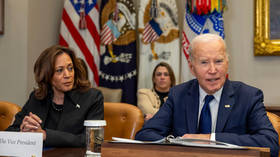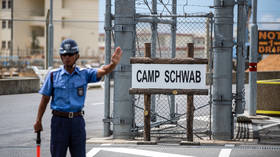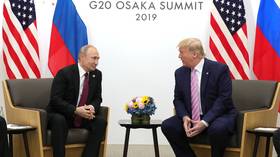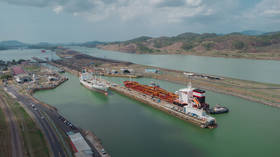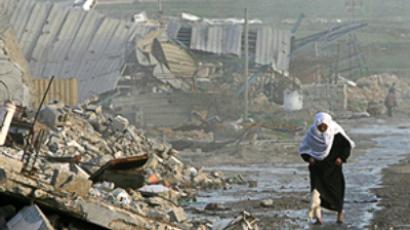UN Lebanese mission could cease to exist
The United Nations Security Council has extended the mandate of a peacekeeping force on the Israeli-Lebanese border for another six months, but the future of multinational peacekeepers in the region is up in the air.
The mission was set up in 1978 to watch over the withdrawal of Israeli troops, and was beefed up following the war in 2006.
In April this year, Poland decided to withdraw its units from the border to join NATO operations elsewhere, a move which could be followed by other nations. Even if the mission does continue, some of the locals question the effectiveness of the 12,000-strong contingent and fear they may not be able to prevent a major conflict.
Homes of the Israelis who live on the northern border overlook southern Lebanon, so they are never far from the watchful eye of Hezbollah. Still, they feel safe because United Nations soldiers are right behind their backs.
“I think it’s good that they’re here. They’re at least stabilizing the situation,” says agriculture manager Amir Antler, who lives in northern Israel.
“We usually see a helicopter doing a patrol twice a day and checking that there are no problems. The conflict between Israel and Lebanon is not resolved and there are still people and organizations trying to break the peace.”
The narrow strip of land that separates Israel from Lebanon is a military zone and is just six meters wide. The United Nations controls it, but do not always get it right.
In fact they got it very wrong three years ago when Hezbollah kidnapped two Israeli soldiers patrolling the border. It triggered a month-long war. Afterwards, the United Nations beefed up its presence and they now patrol with the Lebanese armed forces.
Israeli reserve soldier Jonathan Spyer is skeptical that it will make any difference. He spent a month in an Israeli tank during the war as a reserve soldier. He says while the United Nations Interim Force in Lebanon (UNIFIL) might help prevent attacks, they cannot actually stop a war from breaking out.
“They don’t have a very visible presence on the ground. Basically they’re in vehicles, you see them driving along the road and that’s pretty much as visible as they are. It means they’ve performed the role in locating ordinance concealed in rural areas. In this area UNIFIL can say they’ve had some achievements, but I think by and large in the day-to-day life in southern Lebanon, they’re close to being invisible,” says Jonathan Spyer.
Many who live and work on the border would agree.
“UNIFIL is good for places where there is quiet, a quiet border. I don’t think UNIFIL is good for places where there was a war, there is no peace, and both sides don’t know what is going to be the future,” explains Jacob Katz, former mayor of the town of Metula in northern Israel.
This is the question Israeli officials are asking – how will the United Nations forces in Lebanon look a few months from now? They’re in high demand elsewhere in the world.
The US is putting pressure on European countries to increase their contribution to the NATO-led war in Afghanistan, demonstrated by the fact that Poland has already announced its bringing its soldiers home in the next few months.
And there are signs more countries could follow.
“It may create a problem of credibility. The effective operation of UNIFIL is too dependent on the level of trust that the other actors in this area have in UNIFIL, mainly of course Israel and Lebanon,” says Shlomo Brom from Institute for National Security Studies in Tel Aviv.
“These two states may have less trust in the forces that will replace the European forces.”
Should Poland start a domino effect and other European countries pull out from UNIFIL, the risk of another conflict in this part of the world could be just around the corner.



